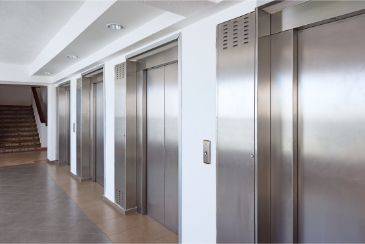 This case involved an elevator accident. What makes this case especially interesting is that special rules govern the standards of negligence and the preservation of evidence in elevator accident cases. These rules go far beyond what is usually required in a tort claim for negligence.
This case involved an elevator accident. What makes this case especially interesting is that special rules govern the standards of negligence and the preservation of evidence in elevator accident cases. These rules go far beyond what is usually required in a tort claim for negligence.
The Georgia Court of Appeals reversed an order for summary judgment granted in favor of the defendants in this case, Hill v. Cole CC Kennesaw GA, LLC, 334 Ga. App. 845, 780 S.E.2d 537 (2015). As a result, Plaintiff will be entitled to have her day in court.
Plaintiff Shakira Hill was injured while entering an elevator and she filed suit against three defendants. They were Cole CC Kennesaw GA, LLC (“Cole CC”) which owned the building, Corporate Facilities Group, Inc., (“CFG”), the manager of the building, and Kone, Inc., the company that serviced and maintained the elevators in the building.
All defendants had moved for summary judgment which the Fulton County State Court granted in two separate orders. The Georgia Court of Appeals reversed summary judgment in favor of Defendant Kone in a 2014 decision. This case involved Plaintiff’s appeal of summary judgment in favor of the other two defendants—Cole CC and CFG—the building owner and its manager.
This case began on November 4, 2009, when an employee of Kone performed service and maintenance on the building’s elevators. The technician left the building at 5:00 p.m. after maintenance had been completed and the elevators supposedly were working properly.
At 10:00 p.m., Plaintiff Hill and a co-worker entered elevator number four. When the elevator had stopped, its floor was not level with the building’s floor. As Plaintiff Hill entered the elevator, she tripped and fell, hitting her head against a metal railing in the elevator. Hill’s co-worker pushed the button for the lobby, a security officer called 911, and Hill was taken to a hospital.
After Hill fell, another building occupant rode the same elevator to a different floor, and then returned to the lobby to report that the elevator was not working properly. The incident was reported to the proper state authority, which sent a representative to inspect the elevator with a Kone employee the next day.
There was evidence to indicate that the state representative and the Kone employee inspected elevator number three—not number four where Hill had fallen—and that elevator number four had not been removed from service.
In her appeal of summary judgment in favor of Defendants Cole CC and CFG, the building owner and its manager, Plaintiff Hill argued that the trial court erred because there was evidence to indicate Defendants had actual and superior knowledge of the defective elevator and failed to maintain the elevator properly.
Relying on earlier precedent, the Court of Appeals noted that the owner of a building with an elevator had a non-delegable duty of “extraordinary diligence” to protect its elevator passengers. A building manager assumes that same duty of extraordinary diligence.
The Kone technician had stated in a deposition that elevator maintenance did not include checking the leveling of the elevator. This directly contradicted the Kone maintenance manual. Hill’s expert witness testified that had the proper maintenance been done, the misleveling problem would have been identified and could have been repaired.
There was also evidence that a Kone technician had discussed misleveling problems in the elevators earlier with a CFG employee.
According to the Court of Appeals, this evidence of Kone’s negligence constituted a breach of Cole CC’s and CFG’s non-delegable duty of extraordinary diligence to protect elevator passengers. Summary judgment in their favor was improper for this reason alone.
But Plaintiff also appealed on the ground of spoliation of evidence. Elevator number four remained in service after Plaintiff Hill was injured. This violated one of the statutes governing elevator accidents:
(a) The owner . . . shall report . . . all elevator . . . related accidents involving personal injury . . . .
(c) Any elevator . . . involved in an accident described in subsection (a) [above] . . . shall be removed from service at the time of the accident. The equipment shall not be repaired, altered, or placed back in service until inspected by a certified inspector for the [state] enforcement authority.
Georgia Code §8-2-106.
The Court of Appeals noted that failure to comply with this statute could result in tampering with evidence, or alteration or destruction of evidence, of the problem with the elevator. According to the court, this constituted a form of spoliation of evidence. This created a presumption that the evidence would have been harmful to the spoliator—the Defendants—and favorable to Plaintiff Hill.
Because evidence showed that Defendants Cole CC and CFG had breached their non-delegable duty of extraordinary diligence to protect elevator passengers, and because they had engaged in spoliation of evidence, the trial court’s order for summary judgment in their favor was reversed. Plaintiff will be able to pursue her claim in court.
